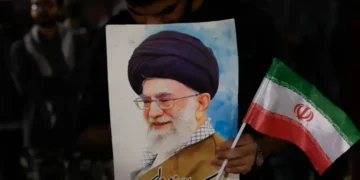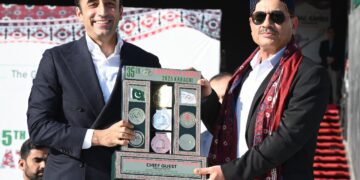Oct. 19 marks the anniversary of the first trial initiated by the international community in 2005 on Saddam Hussein’s infamous crime against humanity, the Dujail Massacre.
Saddam Hussein committed heinous crimes against humanity such as massacring innocent civilians by alleging an assassination attempt against him and deploying chemical weapons against the Kurdish people.
Furthermore, he employed secret police to torture civilians, including children, and carried out brutal rule by detonating dynamites for executions.
His ruthless human rights abuses eventually led to the Iran-Iraq War and the invasion of Kuwait, among other conflicts.
Although Hussein is no longer in this world, even today in the northern part of the Korean Peninsula, Kim Jong-un, who could be considered another Hussein, continues to oppress the human rights of the people.
Kim Jong-un also cruelly executed his uncle with an anti-aircraft gun and burned his remains with a flame thrower his brutality is certainly comparable to that of Hussein.
In particular, the North Korean regime uses forced labor and exploits the workforce in the prison camps to earn a massive amount of foreign currency to advance its nuclear and missile capabilities.
As such, Kim Jong-un’s brutal human rights oppression is not just an internal affair of North Korea, but it may pose a severe threat to international peace as Saddam Hussein had done before.
The international community has long recognized the indispensable relationship between North Korea’s human rights and global peace that the UN General Assembly (UNGA), UN Human Rights Council (UNHRC), and UN Security Council (UNSC) have had rounds of discussions on the human rights situation in North Korea.
On Aug. 17, the UNSC held an open session on human rights abuses in North Korea in six years but failed to adopt a resolution due to a lack of support from China and Russia.
China and Russia seemingly have little incentive to deter North Korea’s human rights abuses and provocations including ballistic missile launches, but rather demand the international community to lift sanctions against the North.
This is not a responsible attitude as a permanent member of the UNSC, but it would rather severely deteriorate human rights conditions in North Korea and take a toll on global peace and security in the long term.
The international community should no longer overlook Kim Jong-un’s atrocities, but utilize the UN’s human rights and law enforcement mechanisms to bring the perpetrator of heinous crimes to justice.
The UNSC should also provide more opportunities to discuss and publicize North Korea’s military provocations and human rights abuses as well as pursue measures including the adoption of an additional resolution against the North to address the problems.
Based on that, it is important to build a condition to indict Kim Jong-un to the International Criminal Court (ICC) or to issue an arrest warrant for him like the case of Putin in Russia.
Aside from the UNSC’s measures, the UNGA should make efforts to adopt a resolution to open a special court to convict Kim Jong-un and North Korean leadership.
As an ex-ante measure, it is necessary to name Kim Jong-un in North Korea Human Rights Resolution, pursued by the UNGA and UNHRC every year.
Though it may be difficult to realize this goal in a short period, strong engagement from the international community itself will put immense pressure on Kim Jong-un.
- Just as the international community held Saddam Hussein fully accountable for his heinous acts, Kim Jong-un shall receive a due punishment.
- By: Kim Jo Ho.



















